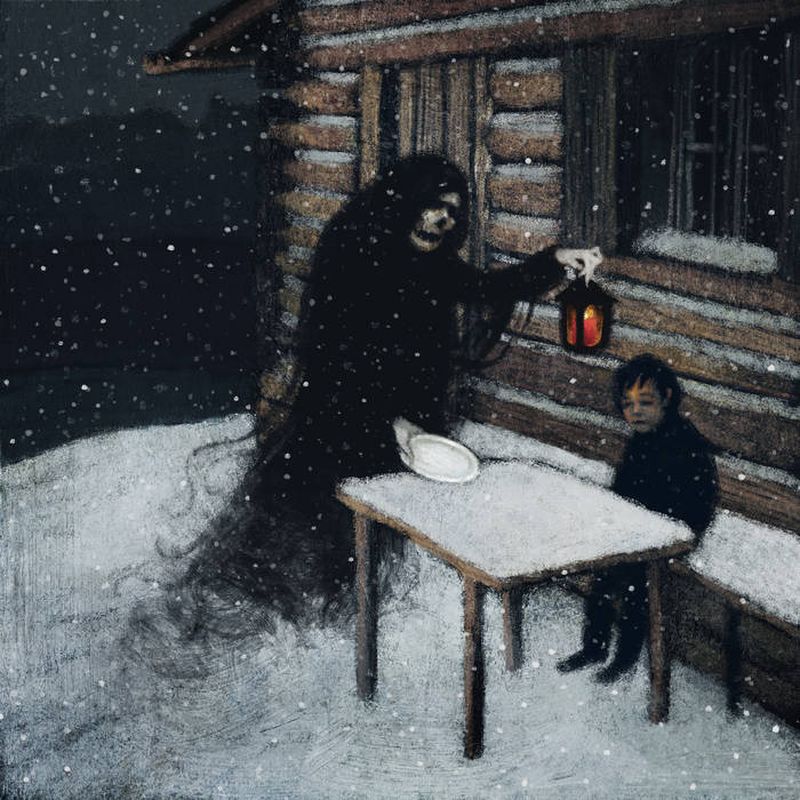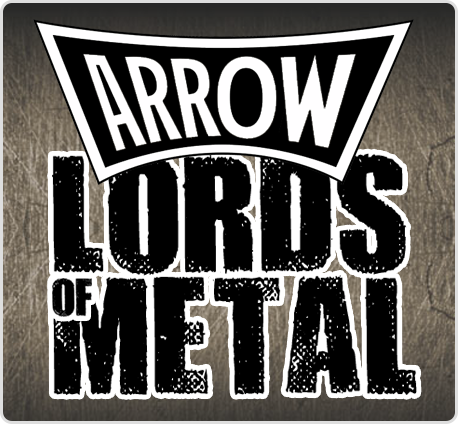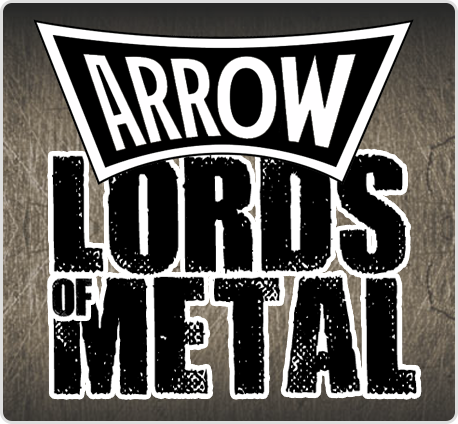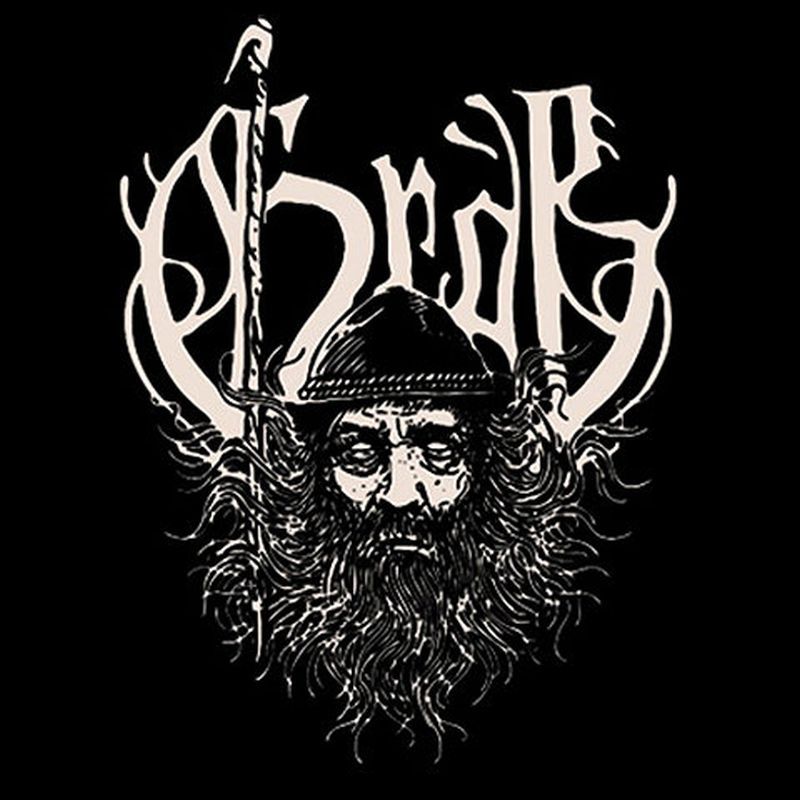
Gràb – interview met Grànt (vocals)
Grànt: “So that are the three perspectives of ‘Dà Letzte Winter’ and it is all about letting go. It is about losing someone. Accepting that, accepting your fate, accepting another one’s fate. You cannot be successful from that. We all will die and that is a really, really meaningful thought.”
You might know the moving spirit from Bavarian atmospheric black metal band Gràb as earlier vocalist of Dark Fortress, but since 2015 he has his own constellation under the moniker of Grànt, based on his Bavarian heritage and black metal from the nineties. ‘Zeitlang’ was already an interesting start, but on Gràb’s second album ‘Kremess’ they really reach a level higher and surpass themselves. On top of that, Grànt turned into a deep-draught, eloquent partner in crime to write this introduction about Gràb. Here we go!
Vera Matthijssens Ι 21 februari 2025
When, how and why did Gràb come into being?
That was in 2015. In the nineties, from 1994 till 2007 I played in a German band called Dark Fortress. Back then I already wrote all the lyrics for songs and it was in English, so my vision for Gràb was do something different in my musical career. I thought it was time to do something in my Bavarian dialect, my mother tongue so to speak. So that was the first thought and then I started writing some lyrics. Actually the first song lyrics I wrote was for the opening track of ‘Zeitlang’ and it was for ‘Nachtkrapp’. I just wrote those lyrics for myself actually in the beginning and then I thought: ‘well, this has the quality to start a band’, to do Bavarian lyrics and to do an original and very unique concept with Bavarian lyrics and traditional Bavarian instruments such as the dulcimer and the Alp horn and stuff like that. So that was the beginning and then I started searching for musicians. Luckily I found the former guitarist Grain and he composed the album ‘Zeitlang’ and we then added the traditional instruments and the rest is history I guess.
Yes and it is great that you succeeded in making such a smooth following successor without your musician from the first one, because you still hear it is Gràb. It developed, I would say it is even more rich…
Yeah, that was the plan anyways. Unfortunately I had to part ways with Grain, the former guitarist. Back then I wasn’t sure I would continue with Gràb and I laid it to rest so to speak and then I started reaching out for befriended guitarists and Dan Capp or Gnàst was one of them, because he already did the whole layout for ‘Zeitlang’. In the beginning he was flattered, but he was a bit sceptical. He said: ‘I am an English guy. You think it is a good idea to add me to your line-up to make Bavarian black metal?’ and I said: ‘yeah, because my idea for Gràb was from the beginning to build something on the basement, the fundamental sound of nineties black metal. It does not matter if the guitarist is from Bavaria or from England or from wherever. It is all about composing songs with a nineties spirit and then we start adding the hammered dulcimer and my Bavarian lyrics and that makes it sound like only Gràb sounds. That is unique, he really did a great job there and yes, I agree. I think it sounds richer, because he is a more technical guitarist than Grain was and he can play acoustic guitar perfectly well. I said to him: ‘let’s add acoustic guitars’, because we had the opportunity. We should do it.’ It gives more variety to our songs. My goal was exactly like you said before, to do something a bit different from ‘Zeitlang’, but it still should sound like Gràb. And I think we succeeded in that. Of course it is different from ‘Zeitlang’, but I can tell you that even if the first guitarist would still be in the band, I would have told him not to repeat ourselves and make the same album again and again because trying to copy yourself never works. It is always about a special period of time and it is about that emotion of that certain time, to record it and you cannot copy. So yes, ‘Kremess’ is different, but it is still Gràb. I am pretty sure that no one can say ‘okay, now Gràb sounds exactly like whatever bands.’
Did Dan Capp also compose the lion’s share of the music like Grain?
He composed all the music himself, except for an instrumental track called ‘Waldeinsamkeit’. It is an instrumental track composed by Markus Stock, Schwadorf of Empyrium. He also composed an instrumental track for ‘Zeitlang’ on the dulcimer and so he decided to do that again, but all the other songs were composed by Dan Capp, by Gnàst except for bonus tracks of the artbook edition of the album which includes two covers from Burzum. All the rest was composed by Gnàst.
Ah I wasn’t sure where you draw the line…
I am not able to play an instrument (chuckles), I cannot compose. Gràb is my wish and it is like that. It was already on ‘Zeitlang’ and now again on ‘Kremess’. The guitarists, they compose the songs, they record the demo versions for each song and they send it to me and I tell them ‘that sounds great’ or not and we could change that particular riff in a song. That is my input then, but all the rest is composed by the guitarist, because, to be honest, I am not even able to sing. Clean vocals I mean. I just do the black metal vocals. All clean vocals are mostly Schwadorf of Empyrium and also Thomas Helm of Empyrium. We have a sort of choirs which is also them of Empyrium and also Gnàst, Dan Capp. He also did some choirs. It was impossible to let him sing lyrics. I mean, it is hard for an English guy to sing Bavarian lyrics (chuckles).
Markus Stock is a huge help for you. In the studio and he plays some dulcimer besides another guest…
We worked a lot with guest musicians on the album. We have another dulcimer player on ‘Kremess’. He already composed all the dulcimer playing on ‘Zeitlang’. His name is Komalé Akakpo. He is a Bavarian guy, really motivated and he is really into black metal. He originally played in a Bavarian traditional folk band, pop music and coincidentally I found him and he is so into black metal and he composed almost all dulcimer parts on ‘Kremess’ too, except for the instrumental track by Markus Stock.
It is more proportional arranged with the black metal fury I would say…
That was also my idea. I mean, I grew up with the black metal during the nineties, so back then they added the synthesizer, some bands even had like a trumpet or something else. So I thought it could be done with a dulcimer too. Not to use it in every song, just in parts to enrich the song with the dulcimer, making it a sort of lead instrument in certain parts and that is more effectual.
I had the impression that the songs ‘Im Hexnhoiz’ and ‘Vom Gråb Im Moos’ are related to each other by a poem. Is that so and please explain…
That is actually two chapters. I had the idea to write my own dark fairytale, a sort of a tribute to a famous German fairytale writer Otfried Preussler. I grew up as a child with his fairytales and I thought it also fits to black metal to write a dark fairytale. I built it up on those two chapters, on those two songs. The story is pretty easy, typical fairytale-like about a wanderer who gets lost in a forest and he comes in a circle of witches and then they summon the devil and then the wanderer gets sacrificed to the devil and from that time on he is cursed to haunt in those woods. There is no happy ending in this fairytale. He is cursed for eternity, that’s a bit of black metal in it, untypical for fairytales I guess.
And it is striking how different those both songs are. We have strings and mysterious things…
That was also the idea, making them different from the rest of the album. Just make them some more playful, because it is a fairytale. Nostalgic and maybe with a bit childhood feeling by adding those acoustic guitars, by adding the dulcimer a lot and the flute and the viola and whatever else.
Also a very interesting song which is different – again – from the other ones, is the last track ‘Dà Letzte Winter’… that really moves me…
That is a really, really emotional song for me. Actually, to be honest with you, I do music for thirty one years now and each of the lyrics I ever wrote are important to me, but those lyrics for ‘Dà Letzte Winter’ are definitely the most important. These are the most emotional lyrics I ever wrote. Every word has such a deep meaning for me. It is about someone really, really important to me in my life who I lost to death, so I had the idea to write a song, those lyrics, from three perspectives. The first perspective is to watch someone meaningful in your life slowly die. You know it is going to be his last winter. You will not have another winter with that person. In my case it was my dog, to be honest with you. I remember in December 2022 I was having a walk with the dog and it was snowing and there was fog everywhere and he was standing there in the middle of the fog. He was already sick at that time, he was staring just into emptiness and I had the impression, even if it is just a dog… I had the impression it perfectly understood that moment he is about to die. It looked at me and when I started writing those lyrics from my perspective, I had to watch him die and I could not help him anymore. Death comes for us all, for every living being and after his death I finished the lyrics, also from his respective, that is the second perspective. He knows he would die and I know it is going to be the last winter and the third perspective is from the reaper himself who, so to speak, just does his job, but in my part at the end of the song, the reaper understands what he is taking away at that moment and it fills him with sorrow at that moment. So that are the three perspectives of ‘Dà Letzte Winter’ and it is all about letting go. It is about losing someone. Accepting that, accepting your fate, accepting another one’s fate. You cannot be successful from that. We all will die and that is a really, really meaningful thought. Actually the vocals I did were straight. I just closed my eyes and did the vocals and I screamed all the emotions, the sorrow, the pain… and I think one can really hear it. It works and you feel the emotion and sorrow in that song and that is why the song is also different than the album. It is the great finale of the album.
Now it is even more precious to me. Strange that I felt intuitively that it was something special… I have to say that I love my cat almost more than anyone else…
Yeah, to many people they are just animals, but for my experience they are precious. That was also a reason why I wrote these lyrics, because also already on ‘Zeitlang’, all my lyrics were about isolating myself from humanity, from human society, because otherwise I got disappointed by human beings. It is all about their egoism, about their lies. I got so fed up and tired of all those lies of human beings and I experienced that my dog, he has so much more to offer in terms of loyalty and he was so thankful, and no other being ever was as thankful as this dog. That was also a thought behind this song, a sort of visualize that human beings are just disappointing. That was the reason for me to live like a hermit and not have too much contact with human beings. Then there was this dog and he had so much more to offer in terms of feelings and that touched me and therefore I decided to dedicate this song to him. It might be totally untypical for black metal – it surely is – but I don’t care. It is about death, it is about deep emotions, it is about the essence of my soul and my heart and that is what I put into my music. I don’t care about limits or anything else… I think in the end the listener – you have the information now, you have the backdrop now for this… even before I told you about it, you felt something authentical in that song. That is for me true art. You put all your heart and soul into each song and in the end the listener will feel it. It is about the feeling of music, it is not just listening to music and… well it sounds good. No! It has – in the best case – to touch the listener and that is what we are aiming for.
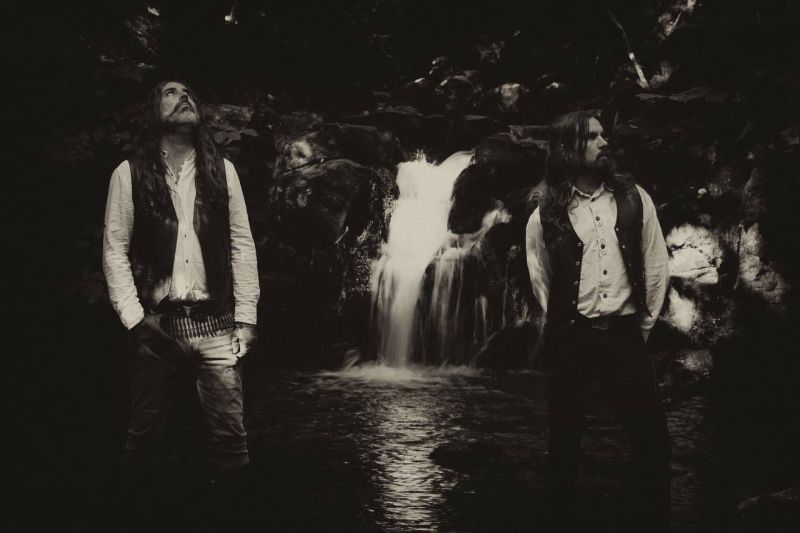
The album title ‘Kremess’ stands for a funeral feast. That fits again with the last track…
‘Kremess’ is actually an old Bavarian word for a funeral fest, a tradition to, after the funeral, to remember the one who died, but I used it in a different context there. Again, all my lyrics are basically about death and my yearning for death, because I don’t want to be alive, at least not amongst human beings. I am fed up with this and so I used that word ‘Kremess’ in a sort of different meaning. It was my idea to do that artwork the way we did it. It is also a really untypical artwork for black metal and actually that child on the cover artwork is me in my childhood place. I sent a photo of my childhood days to the illustrator, Benjamin König and I told him to paint me into that artwork. I am waiting for death, because I remember already in my childhood I did not feel comfortable amongst humans. I thought to myself, back then already when I was eight or nine years old, I cannot really see a place for myself in this world, because human beings are just untiring to me and already back then I was trying to understand death and I was fascinated about it. That is basically what the artwork illustrates, that I am waiting as a child for death and the reaper shows up, like a waiter. He is master and servant in one. Like a waiter he serves me an empty plate, so this funeral feast is about emptiness, by showing this empty plate. His message is clear, life in this world is all about emptiness and I show you emptiness here and if you want to lead a life in emptiness amongst human beings, then come and follow me and I will give you freedom. That is the idea of the artwork and that is basically the idea of the album. It is a lot about childhood feelings, that is the contrast with ‘Zeitlang’. ‘Zeitlang’ was about the story of an old man who looks back on his life, longing for death. I wrote it in a kind of fictional way, but the old man was me. The idea of ‘Zeitlang’ was: how do I see myself when I am an old man? The answer is the lyrics and the story about ‘Zeitlang’. If I ever get like eighty years old, I will exactly do like this. Completely separated from every human being, alone in the nature, waiting for death, longing for death. That was the idea of ‘Zeitlang’ and on the contrary, ‘Kremess’ is about childhood. What made me to this human being I am nowadays? Am I looking forward to death? To die? Even if ‘Kremess’ is not a concept album like ‘Zeitlang’ was, it is still all about death and my yearning for death.
That is a bit sad…
Yeah, but life is sad anyways.
But there are maybe also beautiful moments?
I always do music. You know I never… many people think I am doing music for fun. I never did it for fun. Never. It is a sort of therapy for myself. I had to generalize all my emotions, all the pain and all the sadness and all the anger. That is why music is a therapy for myself. I can talk about those feelings, for sure, but I have the experience that almost no one understands me. So when I write about it, I can say whatever I want. Therefore it is my therapy. It gives me strength ad it relieves me and it has never been about fun, because I just want to do good music. Black metal is basically more than just music. It is about… a philosophy of life and death. It is about the abyss of your soul, diving into your own darkness and that is why I am doing this music, not for fun.
It makes me think of something I thought to myself this week. I like to review always other and different things to make a review and I suddenly wondered ‘if I ever cannot do this anymore, what can I do?’ I think I should fall into a big void. It is also a therapy because it gives my life a direction, a meaning…
It is really important to do whatever fulfils you, because that is the only things you can control in life, do something which is really important for you and that is what you write about music, you listen to music and I create music or better said… lyrics and put whole my soul and heart into it. That’s what I can do, but the rest is… all about lying…Do whatever you love, it is good for you. It feels good to me to write about my emotions about death, even about yearning for death to scream all the way out of me. Even if it is too negative for many people and they even don’t want to connect with it, they don’t want to read it. They only want to read about other things, but I don’t care. It is my life, it is my emotions and music and the art with Gràb is my playground.
It is like a diary…
Yeah, it is a sort of a diary. That is a good comparison.
Please tell me something about the song ‘Waidler’ where you released a first video clip for… in the video we see an old man again…
‘Waidler’ is a Bavarian word for people living in the region of the Bavarian forest. That is actually a place close to where I live and that is a certain type of people. They still have quite a traditional way of living, they are so connected with the nature and their surrounding there. They live a traditional life there and they still are connected to nature. It is beautiful nature in the Bavarian forest, lots of woods… whenever I go there, it feels like I return to a different time. It is as if time stopped there in a positive way. You can dive into it and you are completely away from society and all the stress and all that shit. Yeah it is just about living a traditional life in harmony with nature and that is ‘Waidler’. You can loosely translate it with the woodland. That is where I come from and that old man is actually a ‘waidler’, living in the Bavarian forest, so it was meant to be that he would be the main actor in the video.
I know that Gràb is only doing concerts on special occasions, quite rarely, how do you see that in future?
We only do rare live activity, because I want Gràb to be something special for people and also for us. Each concert has to be something special. You transfer something, you can transfer the atmosphere, the emotion and that makes it special for us and for the audience. If we would do a concert each weekend, it would be just routine. I am not into that. I did so many concerts back then with Dark Fortress and I know at some point it just gets routine and I don’t want to end up that way with Gràb, so in 2025 we are only doing four concerts. Four opportunities for people to see us liven that is the idea behind it. We just accept chosen offers.
Maybe that is good, it remains intense…
Exactly, that is the point. I want Gràb to be something special. Whenever they see us, they can be sure that we have put all our hearts and soul on stage for that one show.
Some words about the other video clips?
Well, the first one was just a lyric video and the newest one, for ‘Vom Gråb Im Moos’ is just a visualizer.
What are for you the main differences between this album and your debut album?
I think, like I said before, it offers and shows a whole more wide range than ‘Zeitlang. ‘Zeitlang’ was all about the atmosphere, about feelings and it worked very well, but on ‘Kremess’ we decided to use the quality of the musicians we have. That is why the songs are richer and offer a wider range of instruments and emotions. It is different. It is still Gràb, yet ‘Kremess’ is a bit more playful in general than ‘Zeitlang’ was, but that is because of the lyrics are more my challenges and emotions. What I wanted to achieve, was trying to create a song with nostalgia. It is also playful and maybe a bit more melodic, but it is still Gràb.
Melancholy seems to be a big part in the music, isn’t it?
Yes, melancholy is always involved when I create something. Let us say that ‘Kremess’ is a different kind of melancholy. You cannot say it is a kind of typical black metal melancholy, it is with so many influences of things. Of course there are a lot of black metal influences, like Ulver, a little bit of Darkthrone, Burzum, early Satyricon and even some Bathory influences. Maybe even some doom metal influences. We create our own mix. In my opinion it works pretty well and to me, it is still black metal. If you think of the second wave of black metal, what the Norwegians and the Swedes did in the early or mid nineties, they did the same thing in my opinion. They adapted the early black metal stuff, like Venom, Bathory, Celtic Frost and created their own style out of this inspiration or influences. You could perfectly hear their influences, like Bathory and stuff like that, but still they sounded unique. That was my idea of Gràb too and we adapted the nineties black metal, but create our very own blend. That is really important to me. We don’t try to just copy a certain band of the nineties. That would be impossible anyway, because, like I said before, that was a certain time. You cannot just copy something from the nineties. Many bands try to do this, but they totally fail. You cannot just try to copy Darkthrone, even Darkthrone itself could not copy it (chuckles). It is all about creating your own thing. That’s what we do with Gràb.
That is one of the reasons why black metal started to interest me with bands like Borknagar and In The Woods, around 1995/1996… a lot of interesting things were suddenly coming out…
It is definitely one of the best and most important years in black metal, because in the beginning there were a lot of bands, like Mayhem and Immortal, you could perfectly hear their influences of Bathory, also a band like Carpatian Forest. I totally love their first mini cd, it is almost like Celtic Frost in their more darker necro style, that was brilliant. They didn’t just copy Celtic Frost, but created their own sound out of the influence from Celtic Frost. And that’s exactly what we do. We do love these nineties bands, also Burzum, but we would never try to just copy it. It would not make sense at all.
That is also something you have in common with Markus Stock…
Yes, he is a good friend of mine for a long time. I know we pretty much have the same taste in music, so that is why I added him to our live line-up. He really loves what we do with Gràb. The nineties were a really important era for black metal, but still, thirty years later, you can create your own art out of it. I think with Gràb we show that it is possible. I mean, you can still hear what our influences are.
One of my questions was which bands influenced you in your youth…
I can tell you the bands that most inspired me in the nineties. For sure Burzum and also Katatonia, the early version of Katatonia. Anders Nyström, Blakkheim, he is an old friend of mine. When we played in Dark Fortress, we already covered a song from the ‘Brave Murder Day’ album from Katatonia, ‘Endtime’. I always loved what Katatonia did, the nineties and the mid nineties, ‘Dance Of December Souls’ is one of the best albums ever composed, because it was a sort of black metal, but also death and doom, they had so many influences: On that record I could even hear some influences of The Cure. You could really hear what bands inspired Katatonia. They created their own art, their own thing, out of it. That melancholy, that darkness, that loneliness Katatonia created, was so unique and it really inspired me with my lyrics, with the music also. That is until this day unique. I have to admit I lost my interest in Katatonia about 25 years ago (excusing chuckle), but that’s okay.
I am looking forward to your live appearance at Prophecy Fest 2025…
It is a really nice location over there, really special. For bands it is also a quite difficult location. The sound in the cave is really challenging on stage. We had a problem. You know, it was our first concert ever for Gràb and no one of us felt really at ease and safe because it was our first concert and then we had that problem that when we entered the stage and played, it was just a wall of noise. If you are not too familiar with the songs and then you hear nothing, it is difficult.
I am going to wish you a very nice evening…
Thank you for the interview and the nice conversation and have a nice evening too.
